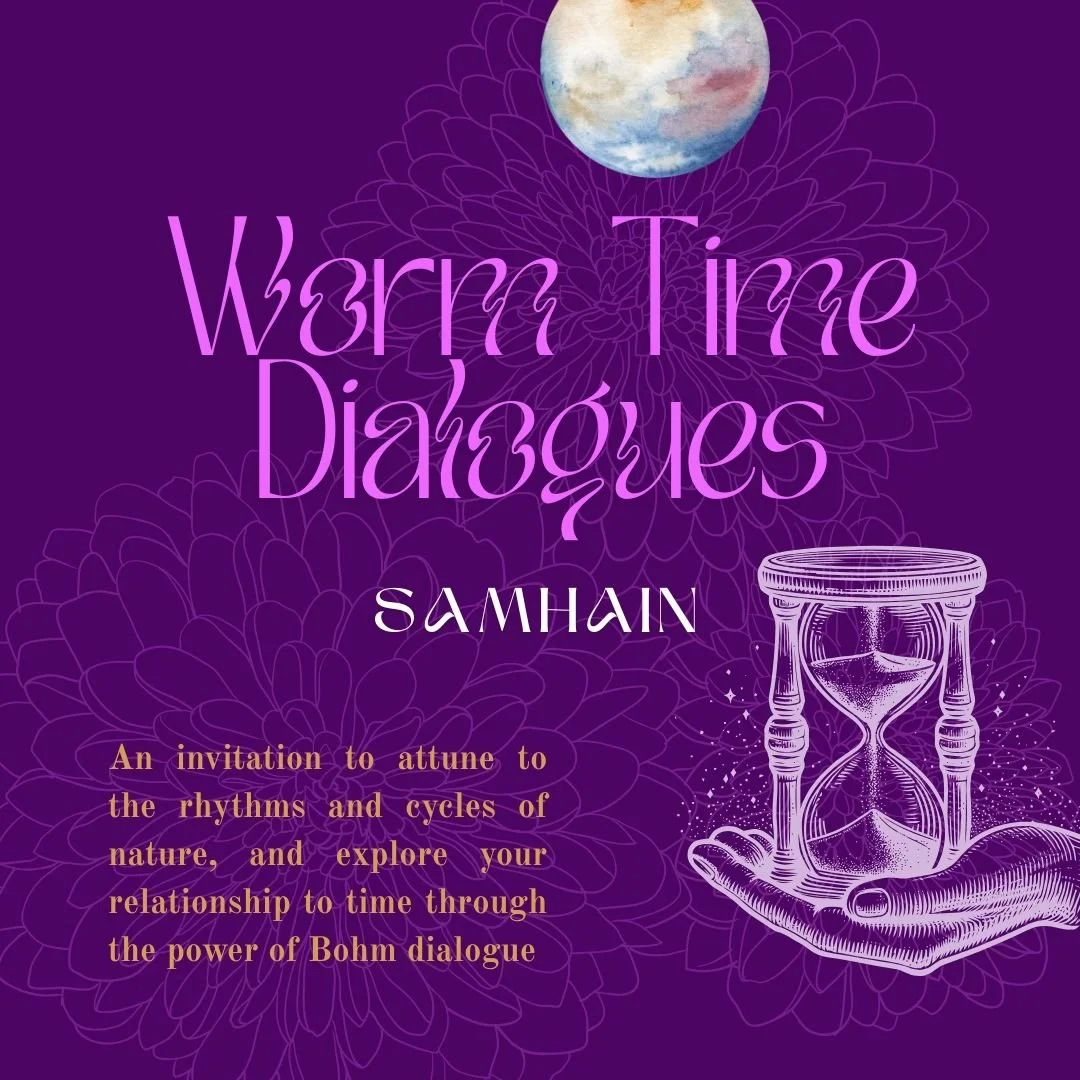Bohm Dialogue Resources
Bohm Dialogue is a process, practice and philosophy. Like any process it needs to be experienced to fully understand it, and whilst participating in one dialogue can be a powerful experience, the full benefits and transformational potential lie with the commitment to a sustained practice. Underlying this process and practice is the philosophy - David Bohm’s thinking and work, that offers further insights into how we experience dialogue, and why it is a vital practice in our current times.
Below are a selection of resources for those interested in learning more about dialogue or joining a dialogue group.
If you are based in or near London, we invite you to join either our monthly Introduction to Bohm Dialogue, or a Worm Time Dialogue. We also occasionally host online dialogues and one-day events. Please do get in touch with any questions you have about these events.
There are other dialogue groups around the world, many of which are listed on the dialogue directory of bohmdialogue.org. Other valuable sources of resources and events related to dialogue are:
The Academy of Professional Dialogue, hosts an annual online conference and a range of resources.
The Pari Center, located in the beautiful village of Pari, in Italy, they offer a range of online and in-person events and resources
You will also find a range of video resources from my own work with dialogue here.
Beyond practicing dialogue with a group, Bohm was clear that it is possible to embody the spirit of dialogue within yourself, or between two people. As well as reading Bohm’s books, you may want to reflect on and incorporate the principles of dialogue into your daily life, illustrated below. These principles are supported by your values. Whilst universal, we each draw on different values at different times in our lives, and imbue them with different meanings. You will find some reflections on values and dialogue here.
At the beginning of a dialogue I invite participants to read the below guidelines together, each person reading a line out loud. This helps further remind participants that entering into a dialogue is a different type of communication and experience than their everyday lives, and allows each voice to enter the circle from the beginning.
Guidelines for creating a dialogue
Be relaxed
Be non-judgemental
Be curious
Listen
A dialogue is a direct, face-to-face encounter
Dialogue is something creative
There shall be no ‘speaking at each other’
We aim to share our opinions without hostility
Can each one of us be aware of the subtle fear and pleasure sensations that ‘block’ his or her ability to listen freely
In a dialogue everybody wins; there shall be no attempt to gain points or to make your particular opinion dominate
Accept that an opinion is an assumption; it is important to see that the different opinions that you have are the result of past thought
Can each participant try to suspend their assumptions; do not judge them as good or bad
We will share our judgements and assumptions with the spirit of fellowship and trust
It isn’t necessary that everybody be convinced to have the same view
Each person shall participate; partake of the whole meaning of the group and take part
We shall test the traditional definitions of what it means to be human
We shall make something in common, by creating something new together
Source: On Dialogue, Bohm, D, 1996



